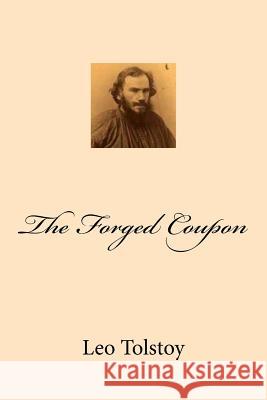The Forged Coupon » książka
The Forged Coupon
ISBN-13: 9781542612760 / Angielski / Miękka / 2017 / 244 str.
INTRODUCTION IN an age of materialism like our own the phenomenon of spiritual power is as significant and inspiring as it is rare. No longer associated with the "divine right" of kings, it has survived the downfall of feudal and theocratic systems as a mystic personal emanation in place of a coercive weapon of statecraft. Freed from its ancient shackles of dogma and despotism it eludes analysis. We know not how to gauge its effect on others, nor even upon ourselves. Like the wind, it permeates the atmosphere we breathe, and baffles while it stimulates the mind with its intangible but compelling force. This psychic power, which the dead weight of materialism is impotent to suppress, is revealed in the lives and writings of men of the most diverse creeds and nationalities. Apart from those who, like Buddha and Mahomet, have been raised to the height of demi-gods by worshipping millions, there are names which leap inevitably to the mind-such names as Savonarola, Luther, Calvin, Rousseau-which stand for types and exemplars of spiritual aspiration. To this high priesthood of the quick among the dead, who can doubt that time will admit Leo Tolstoy-a genius whose greatness has been obscured from us rather than enhanced by his duality; a realist who strove to demolish the mysticism of Christianity, and became himself a mystic in the contemplation of Nature; a man of ardent temperament and robust physique, keenly susceptible to human passions and desires, who battled with himself from early manhood until the spirit, gathering strength with years, inexorably subdued the flesh. Tolstoy the realist steps without cavil into the front rank of modern writers; Tolstoy the idealist has been constantly derided and scorned by men of like birth and education with himself-his altruism denounced as impracticable, his preaching compared with his mode of life to prove him inconsistent, if not insincere. This is the prevailing attitude of politicians and literary men...
Zawartość książki może nie spełniać oczekiwań – reklamacje nie obejmują treści, która mogła nie być redakcyjnie ani merytorycznie opracowana.











